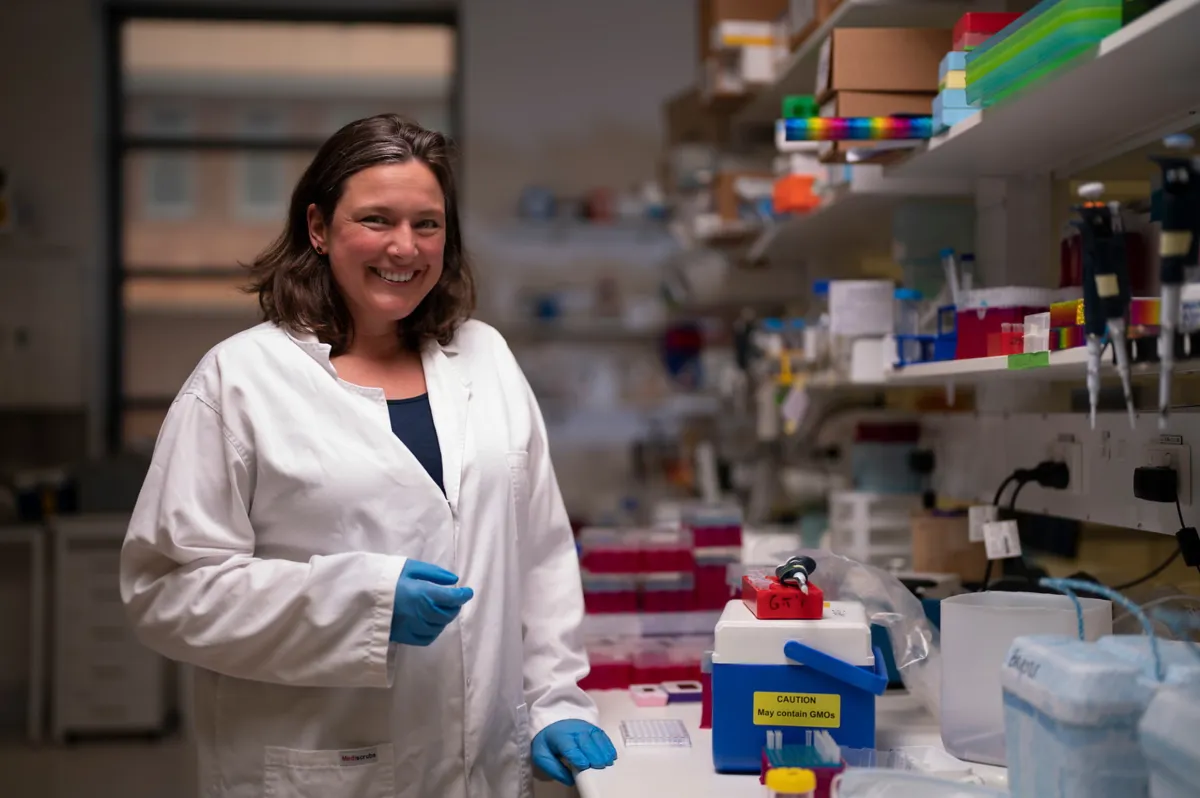Funding for study of innate cells that aims to understand connection with MS

Associate Professor Anne Bruestle at the John Curtin School of Medical Research (JCSMR) received a major grant from the latest MS Australia funding round to study the connection of innate cells for multiple sclerosis (MS) treatment.
With the award of a Senior Fellowship of $650,000 for a five-year funding period, Associate Professor Bruestle’s study will determine how innate cells, which is the body’s first line of defence, functions in MS.
Associate Professor Bruestle is an internationally known MS researcher who uses diverse laboratory models to understand the role of immune cells in MS.
She is chair of the inaugural ANU Grand Challenge ‘Our Health in Our Hands’, a transdisciplinary project to develop person-centred continuous disease monitoring in MS and diabetes.
MS is a chronic autoimmune condition wherein the body's immune system mistakenly attacks its own nerve cells, leading to disruption in the communication between the brain and the rest of the body. It causes inflammation in the brain and spinal cord, leading to a wide range of symptoms for those living with the condition. Most treatments try to prevent immune cells like B and T cells from targeting the body’s own tissue. However, these treatments disregard an important part of the immune system – the innate immune system, which defends invading pathogen, such as a virus or bacteria.
Associate Professor Bruestle’s project focuses on two innate cell types, neutrophil granulocytes and dendritic cells, to understand their uses in MS.
Neutrophil granulocytes are the most abundant cell population in human blood and have multiple functions. Although it is now known that there are many subtypes of these cells, how these relate to MS is still unknown.
Dendritic cells can moderate and direct the effects of B and T cells. They also come in different subtypes, some increasing and others decreasing inflammation.
“By using a laboratory model of MS, our team will investigate these different cell populations, their appearance and function in MS.
“In collaboration with industry partners, we have developed models to either specifically target innate immune cell populations or alter their functions, and plan to explore their use in MS”, Associate Professor Anne Bruestle said.
Associate Professor Bruestle and her team aim to apply their findings in clinical trials.
“We anticipate discovering common factors that could be used as biological signs for MS activity and potential for effective treatment. It is hoped this work will also inform the development of new treatments or repurpose existing treatments for other conditions”, Associate Professor Bruestle added.
Associate Professor Anne Bruestle’s work is one of 17 cutting-edge projects to receiving funding from MS Australia’s latest - $4.5 million - grant round, announced on Wednesday 28 February 2024.
For more information about investigator-led research projects funded by MS Australia, visit here.
